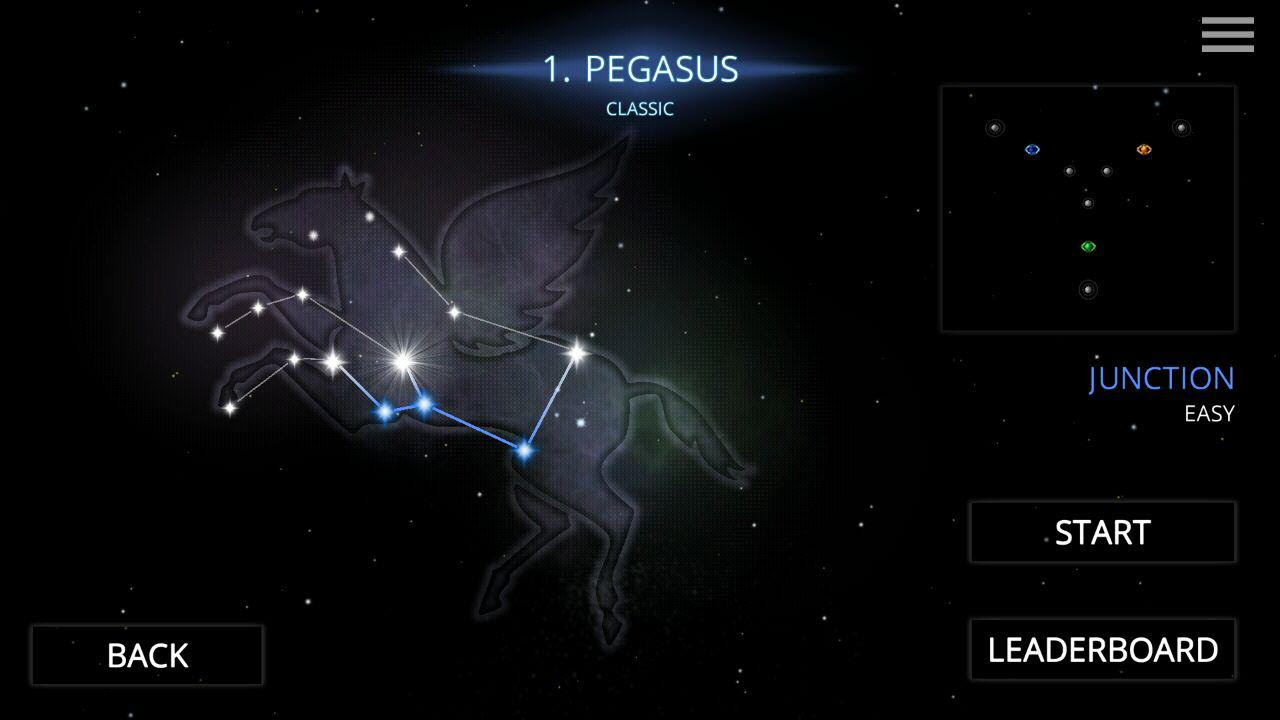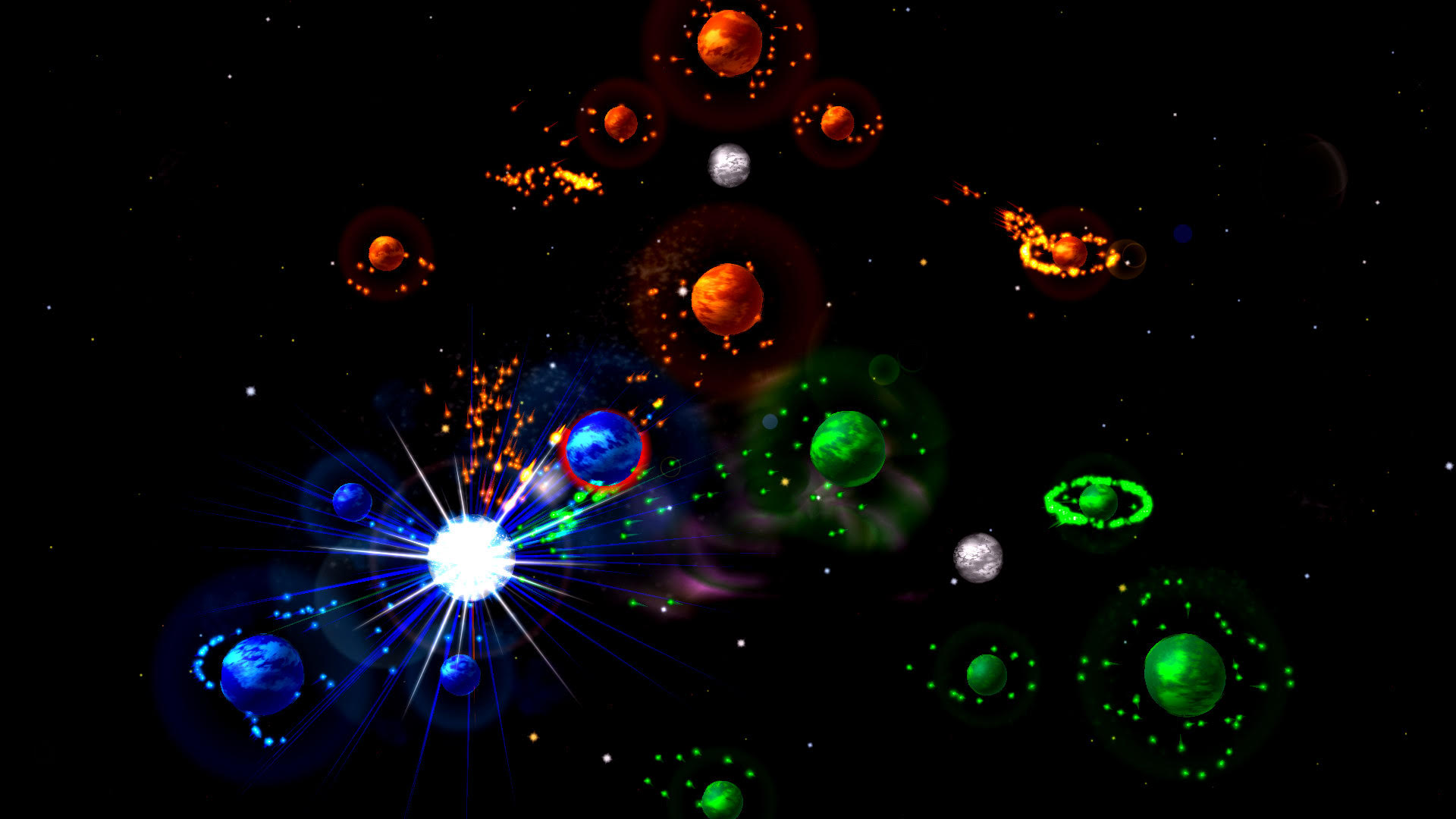Search
[{{{type}}}] {{{reason}}}
{{/data.error.root_cause}}{{{_source.title}}} {{#_source.showPrice}} {{{_source.displayPrice}}} {{/_source.showPrice}}
{{#_source.showLink}} {{/_source.showLink}} {{#_source.showDate}}{{{_source.displayDate}}}
{{/_source.showDate}}{{{_source.description}}}
{{#_source.additionalInfo}}{{#_source.additionalFields}} {{#title}} {{{label}}}: {{{title}}} {{/title}} {{/_source.additionalFields}}
{{/_source.additionalInfo}}- Details
- Category: Computer
- By Hannah Mae
- Hits: 5270
Auralux: Constellations (PC)

Auralux: Constellations
Developed By: War Drum Studios, E McNeill
Published By: War Drum Studios
Released: June 1, 2016
Available On: Windows, Andriod, iOS
Genre: Real-time Strategy
ESRB Rating: E for Everyone
Number of Players: Singleplayer, Multiplayer
Price: $9.99 (Steam); Free (Mobile w/ In-app Purchases)
Thank you, War Drum Studios, for sending us your game to review! Star Trek calls space the final frontier. I argue eternal life in Christ is the real final frontier, but hey, in a physical sense, sure. Space is about as final as it gets. That is unless some kook cracks time travel, but for as stupidly impossible as that is, we have long fantasized the possibilities in science fiction. A beloved creative genre, sci-fi is the land where ideas push scientific fact to their improbable extremes. It inspires the practical and the imaginative. Naturally, this spawned stories of aliens, galaxies, star battles, and exotic planets in books, movies, TV, and games. With so much space-themed entertainment crowding the infinite, Auralux: Constellations by War Drum Studios will have a hefty task distinguishing itself among competing stars.
Without a plot, Auralux runs on a single setup. You are the commander of your own planet, and it’s your objective to use your armada to conquer the system. Now that may sound tyrannical. I can already hear some of you asking yourself questions. Wouldn’t that make me a warmonger? The terror of the galaxies? Suppressor of all in my lust for power? No, not really. Auralux treats itself more like a board game than an all-out battle campaign. Besides, two differently colored planets are also competing for total domination, and you can bet neither will win pacifist of the year. Just be thankful they’re just as against each other as they are against you. Each match in the game takes place in a constellation. There are a total of fourteen constellations to conquer, and in order to control each constellation, you must win all its matches. A match ends when only one planetary color remains. You want that color to be your color, so you better get busy. ‘Cause, Auralux’s pace doesn’t mess around.
Auralux is a real-time strategy game, meaning there is no turn taking. Everyone moves and strategizes freely. This also means good decisions must be paired with good timing. Sometimes it pays to wait before enacting your master plan, but a lengthy delay could spell your gradual demise too. Believe me, the latter can be a slow cruel death. Your color by default is blue. You’ll likely notice that your starter planet is pulsing, and for every pulse out pops two gnat-sized lights. These pretty little fireflies are your troops - your sole means of offense and defense. There are also grey, inactive planets scattered across the area. A few of them might have an extra grey ring or two, but you better think fast. Those uninhabited planets are liable to get snatched up quicker than cookies from a jar. Good thing Auralux’s mechanics, gameplay, and controls are easy to learn and work seamlessly together. Click and drag to select your troops then click on the barren sphere you want to claim. Once enough of your troops invade, your new planet will start adding its own lights to your army. Planets with extra rings are especially valuable. A ringed planet will double in size after consuming more troops, and bigger planets chug out twice as many lights.

Strong Points: Easy to Learn; Fun to Play; Relaxed yet Exciting; Free to Play Modes
Weak Points: Nobody to play with online
Moral Warnings: None!
Hold on though! Before you go haphazardly launching attack waves, consider the cost. To put it bluntly, your forces must have learned from the combat school for kamikazes. Every action a single light does inevitably snuffs it out, so if you don’t have enough lights to fully capture a planet, yet put all your eggs in one basket, you’ll be left waiting for reinforcements - a very vulnerable and undesirable position no matter how you slice it. I say that because, unfortunately, defending your planets also costs troops. Leave next to nothing to circle your planet then next to nothing fends off invaders. Opposing lights cancel each other on contact, and any sustained damage to your planet can’t be healed without (you guessed it) soaking up more lights. There are no special circumstances or special stats assigned to your troops. They’re all one use, one serve. Simple as that. Auralux is focused on the total, not the skill of the individual. In other words, when the time is right you want to be the one with the bigger stick.
Don’t set your sights solely on the grey planets, though. Gaining empty planets might help a lot, but that doesn’t win the war. Being the only color on the board is what really counts, and so long as an enemy has one planet to their name, it’s not over. You must amass your forces. After all, seizing an occupied planet is an uphill battle unless you play your cards right. Planetary invasion requires certain conditions. Step one, overwhelm enemy defenses. Step two, damage target planet until it turns grey. Step three, send more troops to claim planet. Finally, step four, prepare for counterattacks. That’s the straight-laced way. It’s pretty unremarkable but serviceable. However, in Auralux, you’re given legroom to concoct smarter victory plans. For instance, it pays to recall your competitors aren’t teamed up. They’re trying to destroy each other too. I for one like to play the opportunist. If one side expends troops to break another’s defense, I’d send a fresh swarm on the dulled planet and steal the spoils. Goes to show how rewarding thinking outside of the box is. I appreciate games that allow players freedom to form their own style. War is fun when you’re creative, but Auralux adds more inventive potential. The different constellations retain the same goal but bring their own unique spin. For example, one constellation has spaces that slow or quicken troops crossing them. Another constellation is plagued with interval shockwaves that render all planets grey when hit. There’s a constellation with teleporters. Another has changing barriers, and most memorably, there’s one where inhabited planets break apart when conquered, leaving them temporarily unusable to anyone. They’ll get you thinking and rethinking your strategies, and all are great at spicing up the experience after the original flavor gets dull. However, the best news is you can explore each constellation in the order you like. There’s no need to slog through levels you hate in order to find a favorite. You get to do it as you please. Try new surroundings. Test your methods anywhere. Challenge up to four online friends in multiplayer mode. In these days, where locked content is so prevalent, this, my friends, is an all-you-can-eat taco bar.

Higher is better
(10/10 is perfect)
Game Score - 90%
Gameplay - 17/20
Graphics - 9/10
Sound - 9/10
Stability - 5/5
Controls - 5/5
Morality Score - 100%
Violence - 10/10
Language - 10/10
Sexual Content - 10/10
Occult/Supernatural - 10/10
Cultural/Moral/Ethical - 10/10
It’s nice that Auralux: Constellations has some customizability to it. First off, the visuals are very pleasant. I’ve already spent much of my writing describing the light show, but it truly is like watching pretty little fireflies flitting about. Sure, it’s nothing all that new, but it’s certainly nice to see. Actually, it’s kind of mesmerizing. More fascinating to me, though, is how the game completely adheres to its music. The score itself is a crisscross between techno and meditative tones that possesses a fun energy without being hectic. The planets pulse to the tempo and never miss a beat no matter if you increase or decrease the game’s speed in the pause menu. The music is even incorporated into the activity. Clashing lights make these cute little ‘dings’ and ‘boops’ that move up and down the musical scale, and it actually complements the music. This balance between excitement and leisure is quite an achievement on War Drum Studios’ part. I never felt bored nor stressed. It gave a sense of fun without unintended pressure. Also to the game’s presentational merit is the planet customization. Here, you can customize the planets by choosing base colors, the secondary colors, and which pattern will swirl about the globes’ atmospheres. True, some options are locked behind achievements. However, most choices are available from the start. Auralux is sweet like that, both visually and musically. As far as morality goes, Auralux is squeaky clean. There’s no story to scrutinize. There aren’t any sentient life (human or alien) to judge on verbal merit or distasteful fashion, and the violence is as severe as an innocent chess game. The learning curve is pleasantly inviting too with its easy-to-follow tutorial and helpful tips. I’d describe Arualux as one of the few games that’s both enjoyable and courteous to all age groups.
Auralux: Constellations might look unremarkable to some. It’s not a grand space odyssey. Nor is it a thrilling adventure experience. It’s not even all that mindblowing, but let me tell you what Auralux is. It’s inviting. It’s fun. You’re free to play your way for however long or short of time you have. Its gameplay, lights, and music go hand in hand. There’s nothing there to compromise your faith. It doesn’t demand more than what you’re willing to give yet ready dish out something substantial when you crave it. Rare, indeed, is the game that’s not only polite in morals but also polite in its very nature as an enjoyable game. It is unfortunate though that, unless you’ve got online friends to invite or can plug a controller in or two, you’re gonna run a bit dry for human opponents. Nevertheless, Auralux: Constellations is a finely crafted, family-friendly experience through and through. That’s definitely something worth cherishing. Some stars may not shine as brightly as others. The brightest of which gain the most attention, but even the dullest star from a distance can in actuality be the brightest one in the bunch. It’s just a question of perspectives. Where does yours begin? Does it begin from man’s view? Or God’s view?






